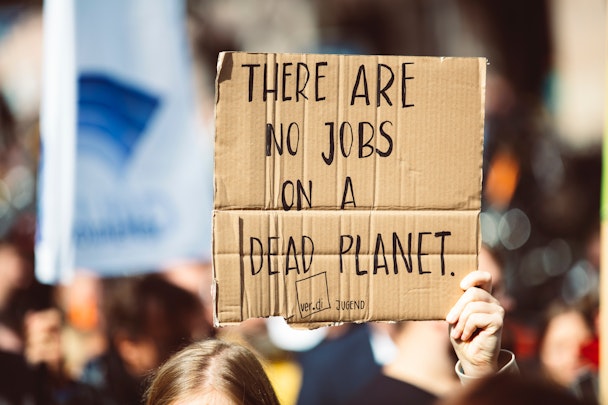‘F-List’ spotlights the 239 ad and PR agencies working with fossil fuel clients
The ‘F-list 2022’ is an independently researched report by the climate activist advertising network Clean Creatives and the non-partisan group Comms Declare.

239 agencies, including holding companies and independents have recently worked with fossil fuels/ Image via Pexel
First launched last year, the ‘F-list 2021’ highlighted over 90 agencies with fossil fuel clients on their books. This year, the research was extended to include a greater focus on Latin America and the Asia Pacific regions, showcasing the agencies actively under contract with the fossil fuel industry and taking this year’s running total up to 239 agencies.
The F-List 2022 scrutinizes sustainability statements from some of adland’s leading firms, including WPP, Omnicom, Interpublic Group (IPG), Publicis Groupe, Dentsu, Edelman and Havas, and compares them with the records of their clients.
Clean Creatives claims that while the report found that most agencies have erased references to fossil fuel clients from their websites, its research teams were able to use web archives to uncover the links despite the sustainability commitments and net zero pledges most have made.
The report comes the same week as congressional democrats in the US held a hearing to discuss the role PR firms have played in blocking climate action and their contributions to the ”deceptive” and ”misleading” tactics used in their campaigns.
Advertisement
Within the advertising industry, the movement against agencies working with ’dirty’ clients is growing. At this year’s Cannes Lions, the complicated relationship took center-stage after ex-adman turned activist Gustav Martner interrupted the opening ceremony to hand back the Lions award he had won for his work with Volkswagen. Protests continued throughout the week as Greenpeace campaigners stormed WPP’s beach takeover and scaled the Palais (a central location in the city) to decry adland’s failure to sever ties with big oil.
The impact of advertising on the social license for major polluters to operate is now being addressed through policy. France recently became the first country to implement a fossil fuel advertising ban, with companies facing a fine of up to €100,000 ($100,000) if they are in breach of the rules. Meanwhile, Sydney, Australia became the first urban center in APAC to do the same.
Advertisement
Here are the key findings
The 239 agencies from major industry holding companies and independent companies have recently worked with fossil fuel companies, the report said. The vast majority of this work is not shared via agency channels.
At least 17 agencies are working for Saudi Aramco, the world’s largest polluter. Interpublic Mediabrands agency, Well7 and fellow IPG agencies McCann, UM and Jack Morton all led substantial work for Aramco, though all holding companies have some connection to the world’s largest oil company.
Coal giant Glencore is being referred to Australian regulators over its brand campaign that features EVs, solar panels and wind turbines but doesn’t mention Glencore’s primary business – coal. This complaint follows the barring of two employees of Anacta Strategies from lobbying the Queensland government. Glencore secured a lucrative bailout while employing Anacta.
Suggested newsletters for you
Edelman retains its role as the independent agency doing the most work for fossil fuel companies, despite a pledge in early 2022 to review its client policy. Some small signs of progress at the PR giant can be seen, but the company remains committed to working with polluters.
“Advertising and PR companies have had decades of warnings that their relationships with fossil fuel companies are harming their reputation and their clean clients,“ says Clean Creatives’ executive director, Duncan Meisel. ”Until now, executives have chosen to ignore those warnings, with serious consequences for the planet and their ability to attract and retain young talent.”
Recent research by Glimpse surveyed the attitudes of 100 UK creatives aged 18 to 30 and found that 63% said they were uncomfortable working on high-carbon clients.
Unsurprisingly, the ad industry’s holding companies and major groups also feature prominently on the list.
WPP declined to comment on its inclusion, but chief exec Mark Read recently told The Drum it had no plans to sever ties with Big Oil, stating: ”In my view, there’s no one solution to this. Yes, energy companies are selling oil. But as consumers, we’re all driving cars and flying in places. It requires a collective solution. Our industry should play a role in doing that – not to misrepresent what they are doing, but if we can talk about what they’re doing in a fair and accurate way, why wouldn’t we want to do that?”
The Drum also reached out to Interpublic (IPG), Ominicom, Publicis Groupe and Dentsu, but they had not responded at the time of publication.
The full report is available to view here.

